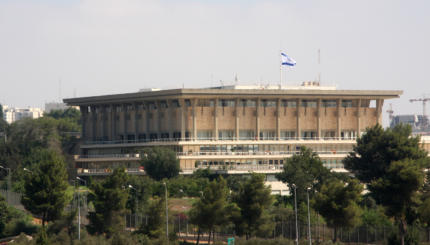For many years the political power of Israel’s Orthodox minority spread as if it would never reach a limit. While their number of seats in Israel’s parliament, the Knesset, remained small in relation to their power and also remarkably stable, the Orthodox rabbis and their political representatives influenced government policy by offering to vote as a bloc to sustain any ruling coalition. There was a price, of course: exemption from military service and subsidies for strict religious education and the welfare of the yeshiva students. These and their other favorite projects expanded after each election campaign. No wonder that an increasing number of Israeli intellectuals, including a noted sociology professor at Hebrew University, warned that Israel might soon become a theocratic state not unlike Iran.
But finally came a pushback in the decades-long battle between State and Synagogue. The results of this January’s elections proved that a good part of the political strength of the Orthodox may have been a myth. It finally may be receding toward a reality more representative of Israeli society, which is predominantly secular in practice although committed to Judaism as a religion.
It all began in 1948 during the first Israeli government when Prime Minister David Ben Gurion excused a mere 400 Orthodox yeshiva students from serving in the army and ceded to the rabbinical courts total jurisdiction over marriage and divorce of Jewish women in the new state. This set the pattern for the small religious parties’ clever manipulation of the ruling parties, which needed their parliamentary votes to hold power –whether the leftist Labor governments of the early days of the state or the rightist governments of recent years.
To the surprise of many Israelis, the elections demonstrated that religious parties can be a serious political liability and no longer an asset purchased by budgets and political concessions. For Prime Minister Benjamin Netanyahu they have become a menacing factor that are literally stuck in his throat as he struggles to form a new coalition. For more than a month since the January 22nd elections, the leader of Israel’s largest political party, Halikud Beitenu, has been unable to form a government without antagonizing the religious parties. According to Israeli law, Netanyahu has until mid-March to form a government. If he can’t, President Shimon Peres must declare new elections.

Trying to work out deals under this sword of Damocles, it seems likely that Netanyahu will somehow succeed in forming a government with or without the votes of the religious parties. Yet there is a lesson to be learned from the present debacle: The political leverage of the religious parties has been dramatically reduced. From now on, both right- and left-wing leaders will try to form governments on their own from the nation’s handful of parties and perhaps even reform Israel’s political system without the need to depend on the support of the religious parties by kowtowing to them.
Let one thing be clear: all this political maneuvering has very little to do with the influence of religion on life in Israel. That will continue to be substantial. Even with the religious parties in the opposition, Israel will be still a country where most yeshiva students will not serve in the army, the Sabbath will be an officially enforced day of rest, and only kosher food will still be served in the army. There will still be rabbinical marriages although civil marriages may finally be possible through a series of interim arrangements.
But whatever the shape – and stability – of the ruling coalition that finally emerges, the veto power of the rabbis has been blunted and may finally be broken.
The Visiting Scribes series was produced by the Jewish Book Council‘s blog, The Prosen People.
kosher
Pronounced: KOH-sher, Origin: Hebrew, adhering to kashrut, the traditional Jewish dietary laws.
yeshiva
Pronounced: yuh-SHEE-vuh or yeh-shee-VAH, Origin: Hebrew, a traditional religious school, where students mainly study Jewish texts.

